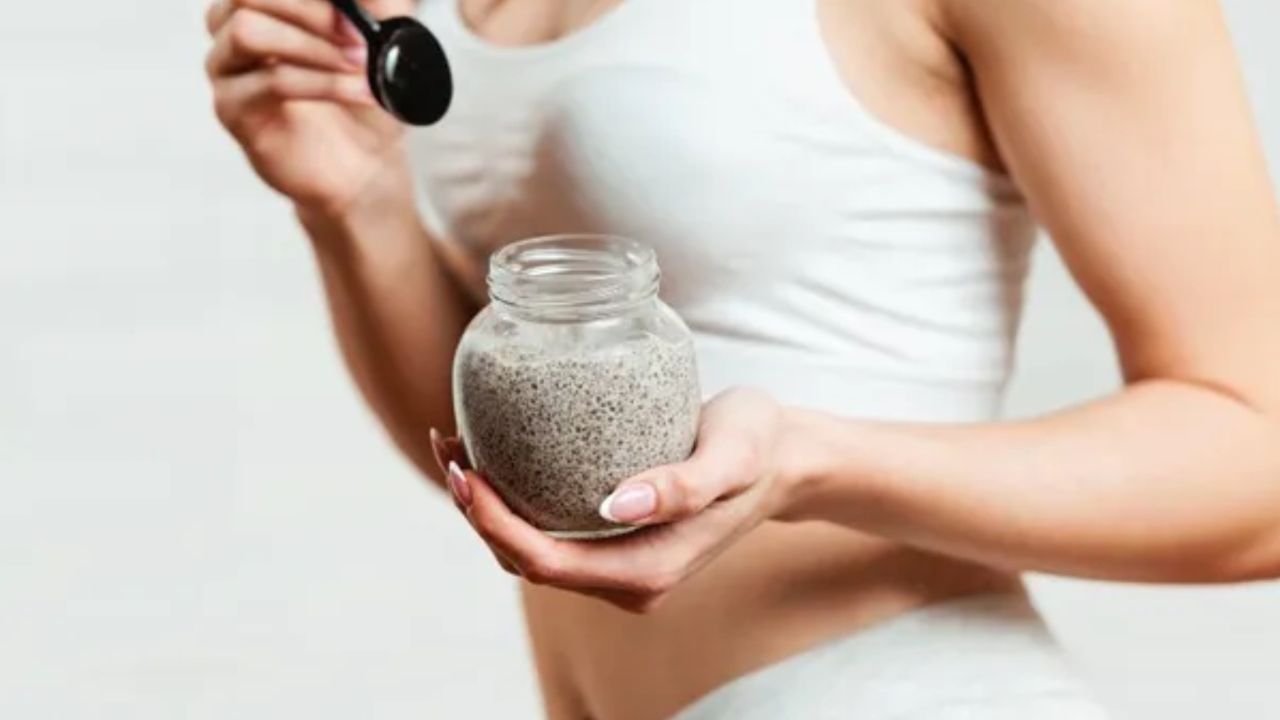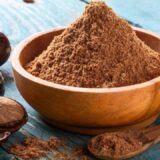Chia Seeds: The Ultimate Guide to Effective Weight Loss
In today’s world, where health and fitness are paramount, many people are on a quest to shed those extra pounds and lead a healthier lifestyle. One superfood that has gained immense popularity in recent years for its weight loss benefits is the humble chia seed. 
These tiny seeds are a powerhouse of nutrients and can be a valuable addition to your weight loss journey. In this article, we will explore how to use chia seeds effectively for weight loss and harness their numerous health benefits.
What Are Chia Seeds?
Chia seeds are small, black or white seeds that originate from the Salvia hispanica plant, native to Mexico. These seeds have a rich historical significance as they were a fundamental part of the diets of both the Aztecs and Mayans.
Interestingly, the word ‘chia’ itself derives from the Mayan language, where it means ‘strength,’ underscoring the importance of these seeds in their cultures.
Chia seeds are renowned for their nutritional value, being densely packed with essential nutrients. They are an abundant source of dietary fiber, protein, healthy fats, vitamins, and minerals, making them a valuable addition to a balanced diet.
Nutritional Profile
Before we delve into their weight loss benefits, let’s take a closer look at the impressive nutritional profile of chia seeds:
- Fiber: Chia seeds are loaded with dietary fiber, which aids in digestion and promotes a feeling of fullness.
- Protein: They are an excellent plant-based protein source, crucial for muscle repair and growth.
- Omega-3 Fatty Acids: Chia seeds are one of the richest plant sources of omega-3s, which support heart and brain health.
- Antioxidants: These seeds contain antioxidants that combat free radicals and reduce inflammation.
- Vitamins and Minerals: Chia seeds provide essential vitamins and minerals like calcium, magnesium, and phosphorus.
Are Chia Seeds Good for Weight Loss?
Research indicates that increasing dietary fiber intake, regardless of overall calorie and macronutrient intake, can support weight loss efforts. Chia seeds, with 3.3 grams of fiber per tablespoon, can enhance satiety and help prevent hunger because their fiber content takes longer to digest.
Additionally, chia seeds are a valuable source of protein, containing 1.6 grams per tablespoon. Protein-rich foods are known to have a prolonged satiating effect, reducing the likelihood of overeating.
Studies have shown that protein is among the most filling macronutrients. It can lower ghrelin levels, the hunger hormone, and boost peptide YY, which further contributes to a sense of fullness.
Therefore, the combination of fiber and protein in chia seeds can increase feelings of satiety, curb cravings, and ultimately assist in achieving a calorie deficit.
It’s important to note that incorporating chia seeds into your diet or consuming them alone, won’t lead to weight loss on its own. Chia seeds can be a helpful component of a weight loss strategy when combined with regular exercise and mindful, healthy eating habits.
They should not be seen as a quick fix for dramatic weight loss. Instead of fixating on individual foods or ‘should’ and ‘shouldn’t’ lists, focus on improving your overall dietary patterns.
How Chia Seeds Aid Weight Loss
Chia seeds have emerged as a popular choice for those on a weight loss journey, and for good reason. These tiny seeds, derived from the Salvia hispanica plant, offer several mechanisms that can assist in shedding unwanted pounds.
1. Rich in Plant-Based Protein
One of the standout features of chia seeds is their substantial protein content. Protein plays a pivotal role in weight management by promoting muscle growth, stabilizing blood sugar levels, and aiding in the process of fat burning.
When you consume chia seeds, you’re providing your body with a valuable source of plant-based protein. This not only helps you feel fuller for longer periods but also reduces your overall appetite, subsequently curbing your calorie intake.
2. A Fiber Powerhouse
Chia seeds are a dietary fiber powerhouse. Just two tablespoons of these seeds can provide nearly 10 grams of fiber, which is roughly 40 percent of the recommended daily intake.
High-fiber foods are renowned for their ability to prolong the feeling of fullness. This means that by incorporating chia seeds into your diet, you can stave off hunger pangs and reduce the temptation to snack on calorie-laden treats between meals.
Research from 2015 even suggests that a daily intake of 30 grams of fiber can contribute significantly to weight loss. This effect is particularly appealing because it doesn’t involve navigating complicated or restrictive diets.
3. Regulating Digestion and Eliminating Toxins
Beyond its satiating qualities, fiber serves another crucial role in weight management: regulating digestion. Chia seeds’ fiber content can help maintain regular bowel movements, preventing issues like constipation that can lead to discomfort and bloating.
Furthermore, the high fiber content in chia seeds can aid in eliminating toxins that may accumulate in your intestines over time. This cleansing effect not only supports digestive health but also contributes to overall well-being.
4. Targeting Belly Fat
Another intriguing benefit of chia seeds is their potential to reduce visceral adipose tissue, commonly known as belly fat.
Research has suggested that incorporating chia seeds into your diet may contribute to a decrease in this stubborn fat that tends to accumulate around the abdominal area.
While spot reduction is not typically effective, the overall reduction in body fat that chia seeds can facilitate may lead to a trimmer waistline over time.
Tips: Chia seeds offer a multifaceted approach to weight loss. They provide the benefits of plant-based protein, an abundance of dietary fiber, improved digestive function, and even the potential to target belly fat.
How to Incorporate Chia Seeds into Your Diet
Chia seeds are a versatile addition to your culinary repertoire, thanks to their neutral flavor that effortlessly melds with a variety of dishes. However, there are some important guidelines to keep in mind when using these tiny seeds.
First and foremost, chia seeds have very little taste of their own, making them a fantastic addition to numerous recipes. You can combine them with virtually any liquid, be it juice or water.
However, it’s crucial to ensure that chia seeds have fully expanded before consumption. Avoid consuming chia seeds in their dry state, especially if you have difficulty swallowing.
Chia seeds have a remarkable ability to absorb many times their weight in water, and consuming them dry can lead to expansion in the esophagus, potentially causing a blockage.
1. Smoothies: Add a spoonful of chia seeds to your morning smoothie for an extra dose of fiber, protein, and omega-3 fatty acids.
2. Oatmeal: Sprinkle chia seeds onto your bowl of oatmeal to boost its nutritional content and create a satisfying texture.
3. Salads: Incorporate chia seeds into your salads for a delightful crunch and added nutrition.
4. Salad Dressing: Mix chia seeds into homemade salad dressings to enhance thickness and nutritional value.
5. Yogurt: Stir chia seeds into yogurt for a protein-packed and textured treat.
6. Soups or Gravy: Use chia seeds as a natural thickening agent in soups and gravies, replacing traditional thickeners.
7. Muffins and Baked Goods: Sprinkle chia seeds into muffin or bread batter for added nutrition and a delightful crunch.
8. Egg Substitute: Chia seeds can serve as a vegan-friendly egg substitute in baked goods. Simply mix one tablespoon of chia seeds with three tablespoons of water, allow it to gel, and use it as you would one egg.
9. Chia Pudding: Create a simple chia pudding by combining chia seeds with your choice of liquid (such as almond milk or coconut milk) and sweetener. Let it sit in the refrigerator until it thickens to your liking, then enjoy a nutritious and satisfying dessert or snack.
Potential side effects of chia seeds
While chia seeds offer numerous health benefits, it’s essential to be aware of potential side effects:
1. Digestive Issues: Chia seeds are high in fiber, which can be beneficial for regularity. However, if consumed in excessive amounts or without sufficient liquid, they may lead to digestive discomfort such as bloating, gas, or diarrhea.
2. Allergic Reactions: Although rare, some individuals may be allergic to chia seeds. Allergic reactions could include hives, itching, or difficulty breathing. If you suspect an allergy, discontinue use and seek medical attention.
3. Gastrointestinal Obstruction: Chia seeds absorb liquid and expand in the stomach. If consumed dry or without adequate hydration, they might swell and potentially cause a blockage in the esophagus or intestines.
4. Blood Thinning: Chia seeds contain omega-3 fatty acids, which have blood-thinning properties. While this can be beneficial for heart health, it may be a concern if you’re already taking blood-thinning medications. Consult your healthcare provider if you have any concerns.
5. Interference with Medications: Chia seeds may interact with certain medications due to their fiber content. They can affect the absorption of medications, so consult your healthcare provider if you’re on medication.
6. Low Blood Pressure: Some people might experience a drop in blood pressure after consuming chia seeds, particularly if they have underlying low blood pressure issues. Monitor your blood pressure and consult a healthcare professional if you notice significant changes.
Tips: To avoid these potential side effects, it’s advisable to consume chia seeds in moderation and ensure you drink plenty of water when including them in your diet.
If you have any underlying medical conditions or concerns about how chia seeds may affect your health, consult with a healthcare provider before adding them to your diet.
Best Time to Drink Chia Seeds for Weight Loss
Drinking chia water as a morning ritual offers distinct advantages. Starting your day with chia water sets a positive tone and establishes a healthy routine.
The morning is an opportune time to provide your body with nutrients, as it kickstarts your metabolism and provides a foundation for the day ahead.
Therefore, consuming chia water early in the morning can be a beneficial way to introduce these nutritious seeds into your diet.
Chia Seeds Recipes to Try for Weight Loss
1. Chia Seed Pudding Recipe
Serves: 2
Preparation Time: 10 minutes (Note: Additional refrigeration time required)
Ingredients:
- 2 cups of Coconut or Almond Milk
- 6 tablespoons of Chia Seeds
- 1 teaspoon of Cinnamon
- A pinch of Sea Salt
- Blueberries or Chopped Nuts for Topping
Method of Preparation:
1. In a jar, pour the coconut or almond milk.
2. Add the chia seeds, cinnamon, and a pinch of sea salt to the milk.
3. Cover the jar with a lid and shake it vigorously to thoroughly mix the ingredients.
4. Place the jar in the refrigerator for a few hours. After this initial refrigeration, take it out and give it a good stir to break up any lumps that may have formed.
5. Return the jar to the refrigerator and let it continue to set for an additional 12 to 18 hours. This extended refrigeration time is essential for the pudding to achieve its desired consistency.
6. When ready to serve, portion the chia seed pudding into bowls or glasses.
7. Top the pudding with your choice of fruits, nuts, or any other preferred toppings. Blueberries or chopped nuts work wonderfully for added flavor and texture.
2. Strawberry Chia Seed Popsicles Recipe
Serves: 10 popsicles
Preparation Time: 10 minutes
Ingredients:
- 3 cups of Frozen Strawberries
- 1/2 cup of Almond Milk
- 1/4 cup of Chia Seeds
Method of Preparation:
1. Begin by blending all of the ingredients together. Combine the frozen strawberries, almond milk, and chia seeds in a blender. Blend until you achieve a smooth and well-mixed consistency.
2. Next, carefully pour the blended mixture into popsicle molds. You can use a funnel or a measuring cup to make this step cleaner and more precise.
3. Insert popsicle sticks into each mold. Ensure that the sticks are secure and centered within the mixture.
4. Place the popsicle molds in the freezer. Allow them to freeze for several hours or until they are completely solid. This typically takes a few hours or overnight.
5. Once the popsicles are frozen solid, remove them from the molds. You can run warm water over the molds to help release the popsicles if needed.
6. Your homemade Strawberry Chia Seed Popsicles are ready to enjoy! These popsicles are a healthier alternative to store-bought options, as they contain no refined sugars or unhealthy fats. Each piece is only about 50 calories, making them a guilt-free treat.
Beat the heat with these refreshing and nutritious homemade popsicles!
FAQs (Frequently Asked Questions)
1. Are there any side effects of consuming chia seeds for weight loss?
While chia seeds are generally safe, overconsumption can lead to digestive issues. Stick to recommended servings.
2. Can I use chia seeds as a meal replacement for weight loss?
Chia seeds can be a part of a balanced meal plan, but they should not replace entire meals. Incorporate them wisely.
3. How long does it take to see weight loss results with chia seeds?
Weight loss varies from person to person. Consistency in incorporating chia seeds into your diet is key.
4. Can I use chia seeds if I have diabetes?
Chia seeds can help regulate blood sugar, but it’s essential to consult with a healthcare professional to determine the right approach for your specific condition.
5. Are there any age restrictions for using chia seeds for weight loss?
Chia seeds are generally safe for most age groups, but it’s best to consult with a healthcare provider, especially for children and the elderly.
Chia seeds are a versatile superfood that can be a valuable asset on your weight loss journey. Their ability to promote fullness, regulate blood sugar, and boost metabolism makes them an excellent choice for those looking to shed pounds the healthy way.
References:
- Seeds, chia seeds, dried(1)
- Chia induces clinically discrete weight loss and improves lipid profile only in altered previous values(2)
- Dietary protein – its role in satiety, energetics, weight loss and health(3)
- Fiber Intake Predicts Weight Loss and Dietary Adherence in Adults Consuming Calorie-Restricted Diets: The POUNDS Lost (Preventing Overweight Using Novel Dietary Strategies) Study(4)

























